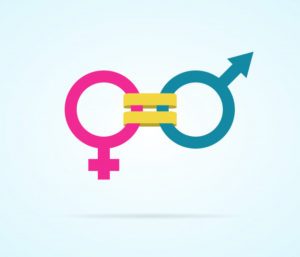GENDER BIAS IN MEDICINE
Relevance: G.S paper I: Social Issues: Women Empowerment & Sociology: Women health issues
Context:
Women’s health has too often been considered a niche area — even though it involves roughly 50% of the world’s population.
Why in news?
International Women’s Day celebrates women’s achievements and raises awareness of the continuing mission towards gender equality. So it’s a good time to be reminded we still need to correct decades — centuries even — of gender bias in medicine and medical research.
Analysis
It’s no secret men and women are different. It’s why we have a whole genre of books and jokes about why “men are from Mars and women are from Venus”.
Mentally, physically and biologically, men and women are simply not built the same way. It sounds obvious, but we have only really begun to understand why.
These differences have not been reflected accurately in the field of medicine. Women’s health has too often been considered a niche area — even though it involves roughly 50 per cent of the world’s population.
Under-researched and under-diagnosed
What we do know is that being female puts us at higher risk of some of the most challenging conditions. Autoimmune diseases, for example, affect approximately 8 per cent of the global population, but 78 per cent of those affected are women.
Females are three times more likely than males to develop rheumatoid arthritis and four times more likely to be diagnosed with multiple sclerosis, an autoimmune disease that attacks the central nervous system.
Women make up two-thirds of people with Alzheimer’s disease, and are three times more likely to have a heart attack than men. Women are at least twice as likely to suffer chronic pain conditions such as fibromyalgia, chronic fatigue syndrome and chronic Lyme disease.
As author Maya Dusenbery made clear in her book “Doing Harm”, these conditions are under-researched and often go undiagnosed and untreated.
Different sex, different symptoms
Heart disease is another example where sex — or perhaps sexism — still plays a huge determining factor. Women are less likely to experience the “classic” symptoms of a heart attack — symptoms that were discovered in research led by men, in which most of the participants were men.
Women’s most common heart attack symptom, as with men, is chest pain or discomfort. But women are more likely than men to experience some of the other common symptoms, particularly shortness of breath, nausea, vomiting and back or jaw pain.


